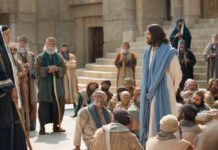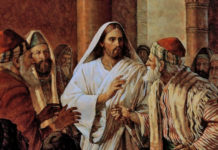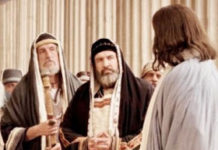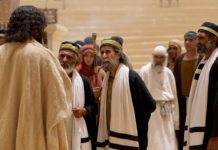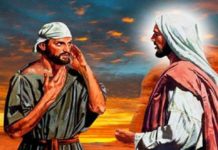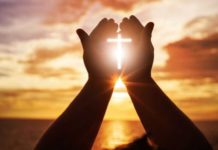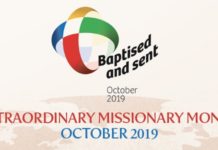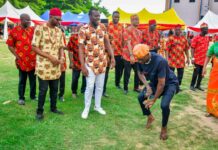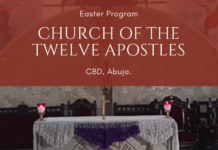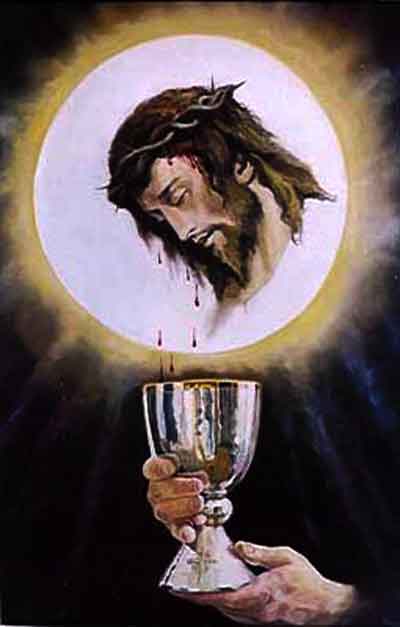FIRST READING
“He is a chosen instrument of mine to carry my name before the Gentiles.”
A reading from the Acts of the Apostles (Acts 9:1-20)
In those days: Saul, still breathing threats and murder against the disciples of the Lord, went to the high priest and asked him for letters to the synagogues at Damascus, so that if he found any belonging to the Way, men or women, he might bring them bound to Jerusalem. Now as he journeyed he approached Damascus, and suddenly a light from heaven flashed about him. And he fell to the ground and heard a voice saying to him, “Saul, Saul, why do you persecute me?” And he said, “Who are you, Lord?” And he said, “I am Jesus, whom you are persecuting; but rise and enter the city, and you will be told what you are to do.” The men who were travelling with him stood speechless, hearing the voice but seeing no one. Saul arose from the ground; and when his eyes were opened, he could see nothing; so they led him by the hand and brought him into Damascus. And for three days he was without sight, and neither ate nor drank. Now there was a disciple at Damascus named Ananias. The Lord said to him in a vision, “Ananias.” And he said, “Here I am, Lord.” And the Lord said to him, “Rise and go to the street called Straight, and inquire in the house of Judas for a man of Tarsus named Saul; for behold, he is praying, and he has seen a man named Ananias come in and lay his hands on him so that he might regain his sight.” But Ananias answered, “Lord, I have heard from many about this man, how much evil he has done to your saints at Jerusalem; and here he has authority from the chief priests to bind all who call upon your name.” But the Lord said to him, “Go., for he is a chosen instrument of mine to carry my name before the Gentiles and kings and the sons of Israel; for I will show him how much he must suffer for the sake of my name.” So Ananias departed and entered the house. And laying his hands on him he said, “Brother Saul, the Lord Jesus who appeared to you on the road by which you came, has sent me that you may regain your sight and be filled with the Holy Spirit.” And immediately something like scales fell from his eyes and he regained his sight. Then he rose and was baptised, and took food and was strengthened. For several days he was with the disciples at Damascus. And in the synagogues immediately he proclaimed Jesus, saying, “He is the Son of God.”
The word of the Lord.
RESPONSORIAL PSALM Psalm 117:1.2 (R. Mark 16:15)
R/. Go into all the world, and preach the Gospel.
Or: Alleluia.
O praise the Lord, all you nations;
acclaim him, all you peoples! R/.
For his merciful love has prevailed over us;
and the Lord’s faithfulness endures forever. R/.
ALLELUIA John 6:56
Alleluia. He who eats my flesh and drinks my blood abides in me, and I in him, says the Lord. Alleluia.
GOSPEL
“My flesh is food indeed, and my blood is drink indeed.”
A reading from the holy Gospel according to John (John 6:52-59)
At that time: The Jews disputed among themselves, saying, “How can this man give us his flesh to eat?” So Jesus said to them, “Truly, truly, I say to you, unless you eat the flesh of the Son of man and drink his blood, you have no life in you; he who eats my flesh and drinks my blood has eternal life, and I will raise him up at the last day. For my flesh is food indeed, and my blood is drink indeed. He who eats my flesh and drinks my blood abides in me, and I in him. As the living Father sent me, and I live because of the Father, so he who eats me will live because of me. This is the bread which came down from heaven, not such as the fathers ate and died; he who eats this bread will live for ever.” This he said in the synagogue, as he taught at Capernaum.
The Gospel of the Lord
TODAY’S REFLECTION
In chapter 6 of the Gospel of John, Jesus repeats again and again that he is the bread of life and that he who eats this bread will live eternally. The Eucharist concretizes union with Christ in faith and ensures life in him. When the Jews are scandalized at this teaching Jesus reinforces his expression and insists on the necessity of eating his flesh and drinking his blood. The blood in particular points to the sacrificial sense of the Eucharist and union with Christ in participating in the work of redemption. The Eucharist is different from all earthly food because it leads to participation in the mystery of Christ through faith. Faith is a necessary requirement for participation which makes present the entire redemptive work of Christ.
